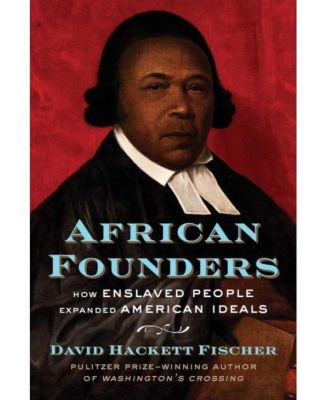African Founders: How Enslaved People Expanded American Ideals by David Hackett Fischer
Product details
Web ID: 14462533Skillfully integrates detail with big picture
African-American contributions to American history are often pushed to the side and either given a lower priority when presented or segregated into its own area. These stories are often discussed during Black History Month, but then forgotten in the remaining eleven months of the year. In this book, a (white) Pulitzer Prize-winning author seeks to make a comprehensive, foundational case that enslaved people significantly enriched the cultural course of America – all before the Civil War. He does so in just under 1,000 pages with meticulous research and engaging prose. Fischer admits that the story of African contributions varies regionally. Thus, he divides his narrative into nine regions, each with its own story, cultural influences, and main actors. Intellectual and spiritual New England fares differently than French/Spanish Louisiana, and Charleston’s Gullah culture varies from Pennsylvania’s Quakers. Organizing this story into regions allows Fischer to describe American in all its diversity. Then he describes how each region was made vitally better by African contributions, in a way that you could not imagine the history existing without these contributions. Importantly, Fischer traces African-American cultural history back to Africa. Into the historical narrative, he integrates information about the names of enslaved people along with where boats transported from. Then he reconstructs the culture of the tribes and countries that these people came from. Thus, the prior lives of enslaved African are respected as they use these skills in a new setting. For example, African boat-making skills, formed especially by one African tribe, added to European boats in the Chesapeake Bay region of America. This technological innovation allowed the region to better conduct commerce among dispersed towns. The tales of individual African-Americans are told here. Some were names I knew, but Fischer still introduced me to so many characters. Even though many whites sought to oppress blacks, enslaved Africans persisted to contribute their knowledge to construct America. Fischer proves that thesis exhaustively, with detail after detail, as he makes the case that American history and American ideals simply could not be without its African roots. I’m not a historian, only a fan of history, so I cannot critically judge the quality of historiography in this book. I trust Fischer’s Pulitzer and distinguished academic credentials (a university professor at Brandeis) are fairly earned. Nonetheless, this book is one of the best histories I have ever read (and I’ve read hundreds). It breaks down an important, complex issue in detailed fashion, and then rebuilds it in a new way that advances the conversation. Words like brilliant and ingenious come to mind. I sincerely hope that Fischer’s take on race in America will achieve their potential in bringing a richer, more diverse, and more honest discussion of who we Americans are.
Customer review from barnesandnoble.com

